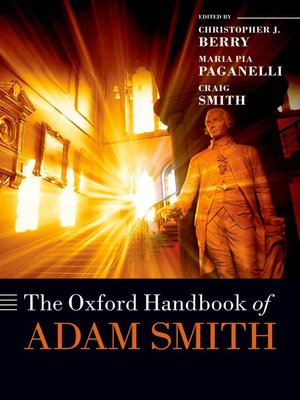
Sign up to save your library
With an OverDrive account, you can save your favorite libraries for at-a-glance information about availability. Find out more about OverDrive accounts.
Find this title in Libby, the library reading app by OverDrive.



Search for a digital library with this title
Title found at these libraries:
| Library Name | Distance |
|---|---|
| Loading... |
Adam Smith (1723-90) is a thinker with a distinctive perspective on human behaviour and social institutions. He is best known as the author of the An Inquiry into the Nature and Causes of the Wealth of Nations (1776). Yet his work is name-checked more often than it is read and then typically it is of an uninformed nature; that he is an apologist for capitalism, a forceful promoter of self-interest, a defender of greed and a critic of any 'interference' in market transactions . To offset this caricature, this Handbook provides an informed portrait. Drawing on the expertise of leading Smith scholars from around the world, it reflects the depth and breadth of Smith's intellectual interests. After an introductory outline chapter on Smith's life and times, the volume comprises 28 new essays divided into seven parts. Five sections are devoted to particular themes in Smith's corpus - his views on Language, Art and Culture; his Moral Philosophy; his Economic thought, his discussions of History and Politics and his analyses of Social Relations. These five parts are framed by one that focuses on the immediate and proximate sources of his thought and the final one that recognizes Smith's status as a thinker of world-historical significance - indicating both his posthumous impact and influence and his contemporary resonance. While each chapter is a discrete contribution to scholarship, the Handbook comprises a composite whole to enable the full range of Smith's work to be appreciated.







